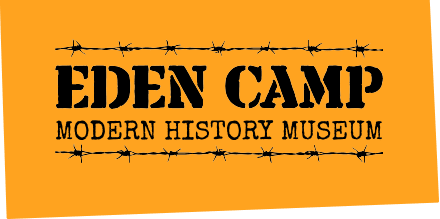Forgotten Friday – ‘The British Schindler’ By Trish Wade, Archive Assistant
In the winter of 1938 Nicholas Winton was a 29 year old stockbroker living and working in London. He had been planning to go on a skiing holiday to Switzerland but following an appeal for help from friends in Prague in Czechoslovakia he realized that there was a growing humanitarian crisis for the refugees there and the increasing danger from Nazi Germany. So, instead of taking his winter holiday he travelled to Prague and met up with Martin Blake who was there working on behalf of the British Committee for Refugees from Czechoslovakia.
Once he arrived there he saw for himself the camps that were filling up with Jewish families forced to escape their homes after Hitler had annexed the northern part of the country, Sudetenland, into Germany. The conditions in the camps were very harsh and the people were struggling to survive the winter temperatures. Having witnessed this, he became very concerned for the welfare of the children in the camps. Nicholas decided that something had to be done to help these children and the obvious solution was to get them to a place of safety in Great Britain.

Sir Nicolas Winton
Nicholas Winton spent nearly a month in Prague helping Blake and others set up headquarters in a hotel in Wenceslas Square, from which they began to compile lists of the names of children whose families wished to send them to safety and take their photographs for visas. Before he returned to London he made telephone calls to his mother Barbara who started to contact the government about the plight of the children and the desperate need to get them to a place of safety. It soon became obvious that this was going to be no easy task and when the British Government agreed to accept the vulnerable children it stated that it was only willing to let them come if strict conditions were met.
The refugees had to be under seventeen years old, have a place to stay when they came to Britain and a warranty of £50 per child (the equivalent of around £3,500 in today’s money) was deposited, to fund the child’s eventual return to their own country when the danger was passed. Once Nicholas returned home he started a campaign to raise the funds to make this possible, placing advertising in newspapers and magazines, this had an effect on the British people and the money started to arrive for the cause. He placed photographs of the children in Picture Post Magazine appealing for homes to take them. There was a good response to this too, although not all the siblings could be kept together. The rescue could begin.

Children waiting to board
In Prague the task of putting the children on the trains, making sure they were correctly numbered and had the right visa papers fell to volunteers Trevor Chadwick, Doreen Warriner, Beatrice Wellington and others who stayed under the increasing threat of German invasion. One main obstacle to overcome in getting the children to Britain was obtaining permission to cross the Netherlands to get to the ferry. The Dutch government had closed its borders to Jewish refugees and were sending them back to Germany, despite the horror waiting there. Nicholas managed to succeed in guaranteeing safe passage on the train for the children.
Once the operation had started eight trains managed to transport 669 children to safety between March and August 1939 from Warsaw station. Following Germany’s invasion of Poland in September 1939 the last train due out didn’t make it and of the 250 children on that train only 2 of them survived the war.
Nicholas had also written to other countries asking for their help, including Roosevelt and the American Government which declined to help. Only Sweden took some of the children. Nicholas thought that another two thousand might have been saved if other countries had been willing to help.
At the start of the war Nicholas was a conscientious objector, working for the Red Cross, however in 1940 he reconsidered his objections and joined the RAF in which he stayed until 1954.
After the war Nicholas Winton married his wife Grete and had three children. He led a quiet and unassuming life and no-one was aware of what he had done to help others until his wife came across a scrapbook which contained the lists, photographs of the children, and their parents details which he had compiled in 1938/39. When his achievements came to the public’s attention he played it down attributing its success to the bravery and efforts of those colleagues who had stayed in Prague, namely Doreen Warriner, Nicholas Stopford, Beatrice Wellington, Josephine Pike, Bill Barazetti and Trevor Chadwick who (in Nicholas Winton’s opinion) deserved all the praise for carrying on working when it became dangerous when the germans came.
In February 1988 the wider world found out about Nicholas Winton and his work when he was on a TV programme called That’s Life which in turn led to him being reunited with many of the children (now adults) he saved and the children and grandchildren of those who had also been on the ‘Kindertransport’. He was awarded an MBE in 1983 for his work in establishing homes for the elderly and in 2003 he was knighted for services to humanity, in recognition for the Czech Kindertransport. He was also awarded many other honors by the Czech government and a statue was erected to him at Prague Main Railway Station.
Nicholas Winton died on 1st July 2015 aged 106

